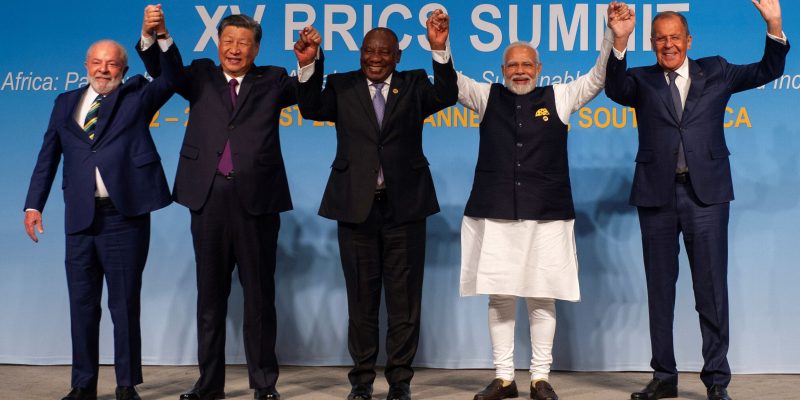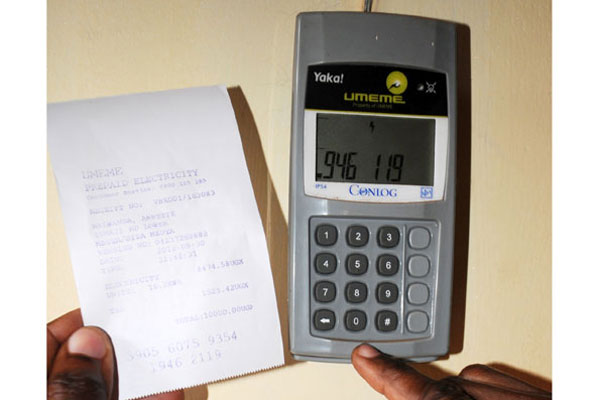
In the world of international geopolitics and economics, the term “BRICS” has been making significant waves. Comprising five influential countries – Brazil, Russia, India, China, and South Africa – BRICS is an acronym that represents a powerful economic bloc with ambitions that extend far beyond its current membership. The five-nation club comprises 40% of the world’s population and more than 25 percent of global GDP. In this article, we will delve into the origins of BRICS, explore which countries aspire to join this exclusive club and why, and highlight the purpose and benefits of BRICS, particularly to Africa and the global economy. We’ll also touch on the cultural ties that bind these nations.
Understanding BRICS: A brief overview
BRICS, an acronym coined in 2001 by then Goldman Sachs chief economist Jim O’Neill, initially included Brazil, Russia, India, and China, with South Africa joining later in 2010. These nations came together to form a cooperative bloc that aimed to challenge the dominance of Western economies in global affairs and reshape the international economic order.
Each member brought unique strengths to the table:
- Brazil: Known for its rich natural resources and agricultural prowess.
- Russia: Renowned for its vast energy reserves and strategic geographic location.
- India: Recognized as a global technology and service powerhouse with a large and youthful population.
- China: The world’s manufacturing and export hub, boasting the planet’s largest population.
- South Africa: A representative of the African continent, known for its diverse natural resources and growing economy.
Aspiring members: Who wants to join BRICS and why?
While BRICS is already a formidable alliance, several other countries have expressed interest in joining this influential group. These aspirants believe that BRICS membership could bolster their economic and geopolitical influence on the world stage. Here are a few nations that have shown interest:
- Turkey: Turkey has been vocal about its desire to become a member of BRICS. The country boasting a GDP of 819 billion sees itself as a bridge between Europe and Asia. USD. By joining BRICS, Turkey aims to enhance its economic cooperation with the current members and expand its influence in global affairs.
- Indonesia: Indonesia, with a GDP of 1.186 trillion USD is Southeast Asia’s largest economy. It has also expressed interest in joining BRICS. With a growing population and a thriving manufacturing sector, Indonesia believes that BRICS membership would provide it with an opportunity to boost trade and investment and strengthen its role in regional and global economic forums.
- Mexico: Mexico, with its proximity to the United States and strong ties to Latin America, is another country eyeing BRICS membership. By aligning with BRICS, Mexico aims to diversify its economic partners and gain more influence in international trade negotiations that will help strengthen it’s 1.273 trillion economy.
- Egypt: As the most populous country in Africa and strategically located in the Middle East, Egypt has expressed interest in joining BRICS. It believes that BRICS membership would help it tap into the African market, strengthen its regional leadership, elevate its global standing and grow their 404.1 billion USD GDP.
- Nigeria: With a GDP of 440.8 billion USD, Nigeria, is the largest economy in Africa, and has also considered the possibility of joining BRICS. With its vast natural resources and young population, Nigeria sees BRICS membership as a way to boost trade, investment, and infrastructure development on the African continent.
The Purpose and Benefits of BRICS
BRICS serves several essential purposes and offers numerous benefits to its member countries:
- Economic Cooperation: BRICS fosters economic cooperation among its member states, promoting trade, investment, and technology transfer. This cooperation allows BRICS nations to leverage each other’s strengths and reduce their dependence on Western economies.
- Geopolitical Influence: As a group, BRICS has an increased geopolitical influence on international matters. It provides a platform for its members to collectively address global issues such as climate change, terrorism, and economic reform.
- Financial Cooperation: BRICS members have established institutions like the New Development Bank (NDB) and the Contingent Reserve Arrangement (CRA) to provide financial assistance for infrastructure development and stabilize their economies in times of crisis.
- Cultural Exchange: Beyond economics and politics, BRICS promotes cultural exchange among its member countries. This includes initiatives to share knowledge, arts, and cultural heritage, fostering a deeper understanding of each other’s traditions and values.
- African Partnership: BRICS recognizes the importance of Africa in the global economy and has engaged in partnerships with African countries. This includes initiatives for infrastructure development, technology transfer, and capacity building on the continent.
BRICS and Africa: A synergistic relationship
Africa has been a significant focus of BRICS, and the relationship between the two entities is mutually beneficial. BRICS countries recognize Africa’s vast potential, abundant resources, and growing consumer markets. In return, BRICS offers African nations infrastructure development, investment opportunities, and expertise in various sectors.
Some notable BRICS-Africa initiatives include:
– The BRICS-Africa Outreach Summit: This event provides a platform for African leaders to engage with BRICS leaders and discuss mutual interests, such as trade, investment, and development.
– Investment in African Infrastructure: BRICS nations have committed substantial resources to finance infrastructure projects in Africa, such as transportation, energy, and telecommunications.
– Technology Transfer and Capacity Building: BRICS countries have offered technical assistance and expertise to help African nations develop critical sectors, including agriculture, healthcare, and education.
– Promotion of African Culture: BRICS actively engages in cultural exchange programs with African countries, celebrating the rich cultural diversity of the continent.
The Future of BRICS and Beyond
As BRICS continues to evolve, its role in shaping the global economy and geopolitics will become increasingly pronounced. The aspirations of countries seeking BRICS membership reflect the group’s growing influence and appeal.
For the East African region, BRICS presents opportunities for increased trade, investment, and cultural exchange. As the world looks towards multipolar economic and political landscapes, BRICS remains a significant player, offering a diverse array of perspectives, solutions, and partnerships.
In conclusion, BRICS has emerged as a pillar of the global economy, transcending its original member countries to engage with aspirants seeking to benefit from its collective strength. The cultural ties that bind these nations, combined with their economic and geopolitical aspirations, make BRICS an influential force in today’s world. Understanding BRICS and its impact on Africa and the global economy is essential, as it represents a promising avenue for growth, cooperation, and cultural exchange.










